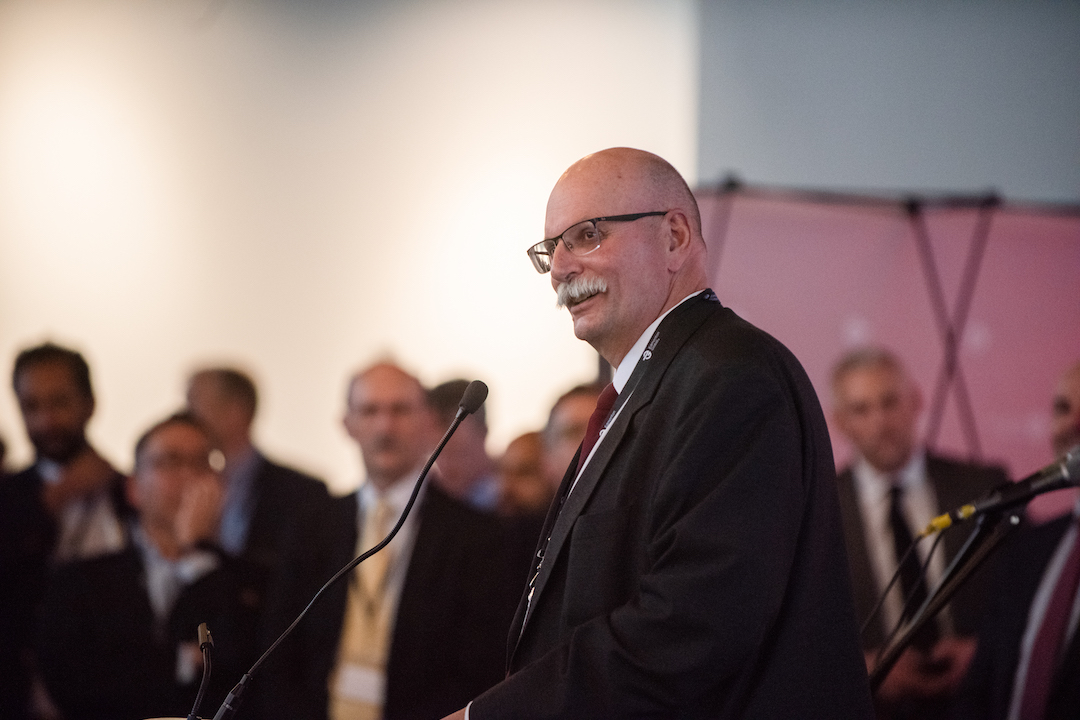Malcolm Bruce, CEO of Edmonton Global, says the organization's now complete six-month listening tour has produced insights that could result in changes, including potential shifts to how the organization is funded and governed.
"Are we structured the right way? Do we have the right processes in place to function?" Bruce said he asked during the self-imposed listening tour of the organization's member municipalities. "Part of this undertaking was: How do we make the organization better? While the reason why we kicked it off was probably a little more negative, the actual end result has been to make this organization stronger."
The negative spark that kicked off the listening tour was Sturgeon County, Strathcona County, Parkland County, Fort Saskatchewan, and Devon all announcing their plans to leave the organization in 2023.
Mayors have subsequently shared some reasons why their municipalities voted to leave, citing desires to balance budgets, to find a stronger return on investment for tax dollars, and potential mismatches between Edmonton Global's economic development work and the industries in their jurisdiction. For example, some municipalities in the region have little activity in life sciences or hydrogen industries, and presumably don't stand to gain from Edmonton Global incentivizing companies in those industries to come to the region. Still, the region overall benefits from investments as a whole.
Edmonton Global was established in 2017 and launched in 2018 by multiple municipalities across the region. The main industries the organization currently promotes to foreign investors are artificial intelligence and technology, clean technology, digital media and entertainment, food and agriculture, global logistics, health and life sciences, and hydrogen.
Bruce said the industries Edmonton Global promotes to foreign investors may change based on an ongoing review that should conclude by an annual general meeting in early 2025. "Maybe it's time to revisit what we did to kick the whole process off six and a half years ago, which is we did 12 sectoral reviews," Bruce said. "When the shareholder group says 'Can we revisit that?', the answer is 'Of course we can.'"
In June, Edmonton Global's member municipalities (which it describes as shareholders) and its board issued a joint statement that hints at what could change in the future. The statement said the organization has accepted recommendations from a committee of shareholders focused on what to do next, but provided few details on what those recommendations are. Edmonton Global said it promised the shareholder committee confidentiality in exchange for its candour, and cited this as the reason for vagueness in emails to Taproot.
"Some of the decisions that were made are now in the process of being executed on through an implementation plan," Bruce added about this situation. "We have milestones of reporting back to the shareholder group, both (in October) and then at the AGM 2025."
Other large changes being considered following the listening tour are a potential shift to Edmonton Global's funding model (members currently pay $5 million combined each year), its governance structure, and the way it communicates with members.
"There's a whole plethora of the communication side (of our work) that we're going to be working through, and we're going to test and experiment some (new) things," Bruce said. "(Some feedback was) about the way we communicate, how they want to receive information, and what kind of information they want to see."

Malcolm Bruce, the CEO of Edmonton Global, told Taproot that his organization focused on international investment for the region will look into the business sectors it promotes. Five of Edmonton Global's 14 member municipalities may leave the organization in December of 2025, and Bruce said while his team strives for constant improvement, he wants members to make the decision that is in their best interest. (Supplied)
How Edmonton Global shares information seems especially relevant given its communications executive, Chris McLeod, who joined at its founding and helped grow and establish the Canadian Hydrogen Convention and Carbon Capture Canada events, parted ways with the organization on July 5. "Edmonton Global is in a great place, and I've done what I set out to do," McLeod said in a release.
Bruce said he wants to ensure Edmonton Global pitches the right regional industries in the right ways, but that if the municipalities that have suggested they want to leave do move on, he understands.
"If a municipality decides that they're going to leave … then we will have to adjust our value proposition," Bruce said. Later, he added: "This is a voluntary organization. Individual municipalities need to make decisions that are best suited for them."
Edmonton Global has been operating for six years. Is a new era coming? Bruce said Global is more focused on continuous improvement than eras. Still, he said it's important that the organization has mechanisms to address concerns. "If there are tweaks, changes, or needs for different things to occur, we'll have a process to be able to do that now," he said.
Coming up next for Edmonton Global is the organization's work to co-host the Carbon Capture Canada conference at the Edmonton Convention Centre from Sept. 10 to 12. Bruce and his colleague Brent Lakeman (who works on hydrogen) are both confirmed speakers. Following that, the organization is a sponsor for Life Sciences Week, running Sept. 23 to 27.
